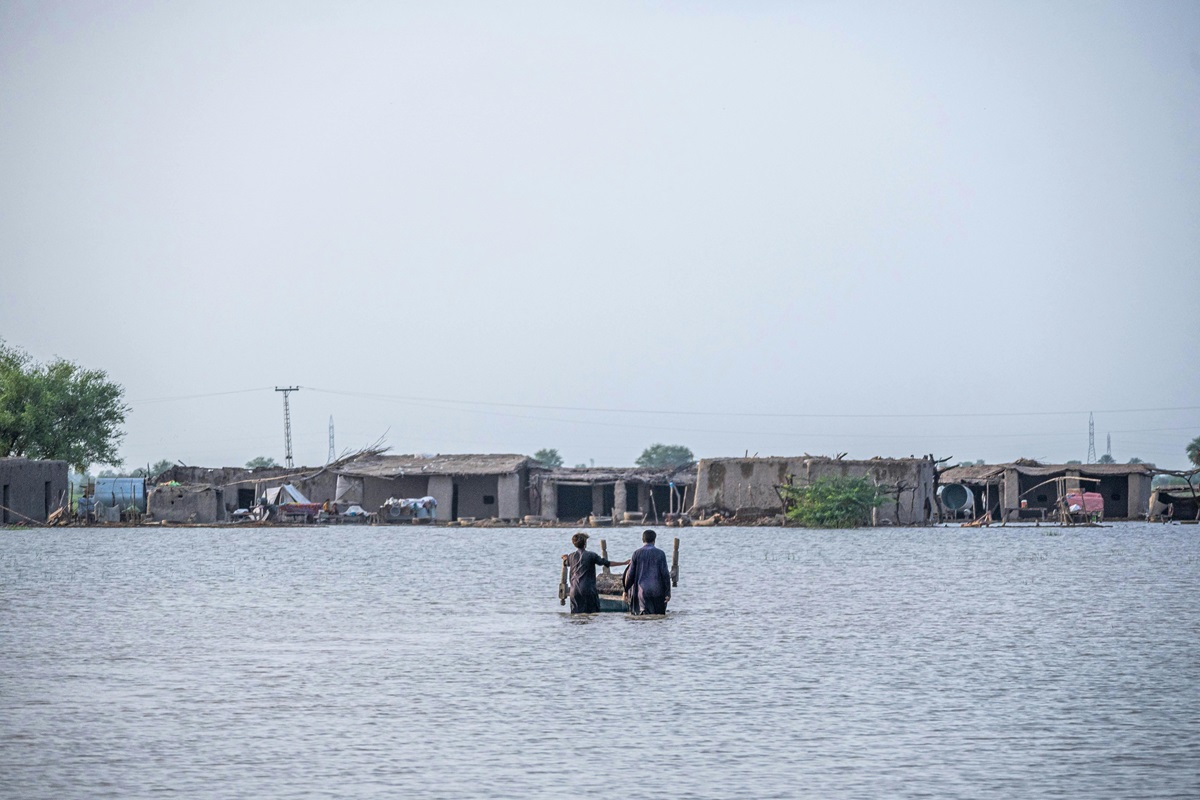COP29 sounds alarm over the melting of the Hindu Kush
In the last ten years, the ice in the Himalayan region has shrunk by 65% compared to the previous decade. South Asia could lose up to 75% of its glacier volume by the end of the century. The call for climate finance to mitigate the effects and the compromise solution adopted in Baku, deemed insufficient by developing countries.
Milan (AsiaNews/Agencies) - Tripling by 2035 the fund for protecting developing countries against climate disasters, with the goal of reaching 300 billion dollars a year. A compromise, however, far from the needs, estimated at USD 1.3 trillion a year. This is the much-discussed outcome of the UN Climate Change Conference, COP29, held in Baku, Azerbaijan, and which had precisely the issue of climate finance as one of its focal points.
How climate change is already a crucial issue for many areas of the world can be seen in the appeal launched in Baku by Pakistan on the Hindu Kush Himalayan region. Prime Minister Shehbaz Sharif recalled how the country, despite its minimal contribution to global emissions, is among the most affected by extreme weather phenomena. The monsoon floods of 2022, which killed 1,700 people, displaced millions, destroyed crops and homes, and caused an estimated billion in economic losses, are a clear example.
The accelerated melting of the Hindu Kush Himalayas, highlighted in the 2024 Cryosphere Report presented at the summit, is one of the biggest threats. This vast glacial expanse, the largest in the world after the Arctic and Antarctica, is a source of water supply for Asia's major rivers, supporting over 1.6 billion people. However, in the last ten years, the ice of the Hindu Kush has shrunk by 65% compared to the previous decade, and according to the International Centre for Integrated Mountain Development (ICIMOD), South Asia could lose up to 75% of its glacier volume by the end of the century. This scenario would have a dramatic impact on water resources, hydropower production and climate migration, especially in downstream regions.
Pakistan is trying to tackle the climate crisis with ambitious plans such as the Green Pakistan Project, an initiative that aims to produce 60 per cent of energy from renewable sources and convert 30 per cent of vehicles to electric by 2030. However, as Sharif stated, the country cannot do it alone.
During his speech, the prime minister reiterated that international support is crucial to protect millions of people, safeguard natural resources and ensure a sustainable future. The global community must act urgently to curb emissions and counter the damage caused by global warming, which continues to disproportionately affect countries like Pakistan, which have been challenged by extreme heat waves, abnormal rainfall and frequent flooding.
At COP29, leaders of the major countries in the Hindu Kush region, including Nepal, Bangladesh, Bhutan, India, and Pakistan, emphasised the need for greater cooperation among the states concerned. Kama Tshering, the secretary for Bhutan's Ministry of Energy and Natural Resources, proposed three main action plans: monitoring cryosphere hazards, implementing early warning systems, and investing in resilient and durable infrastructure. The Prime Minister of Bhutan also praised the work of ICIMOD, which provides a platform for states in the region to make their voices heard globally. ‘Together we can create a sustainable and resilient future for the Hindu Kush Himalayan region,’ said Romina Khursheed Alam, coordinator for Pakistan's Ministry of Climate Change and Environmental Coordination.
12/02/2016 15:14







.png)










